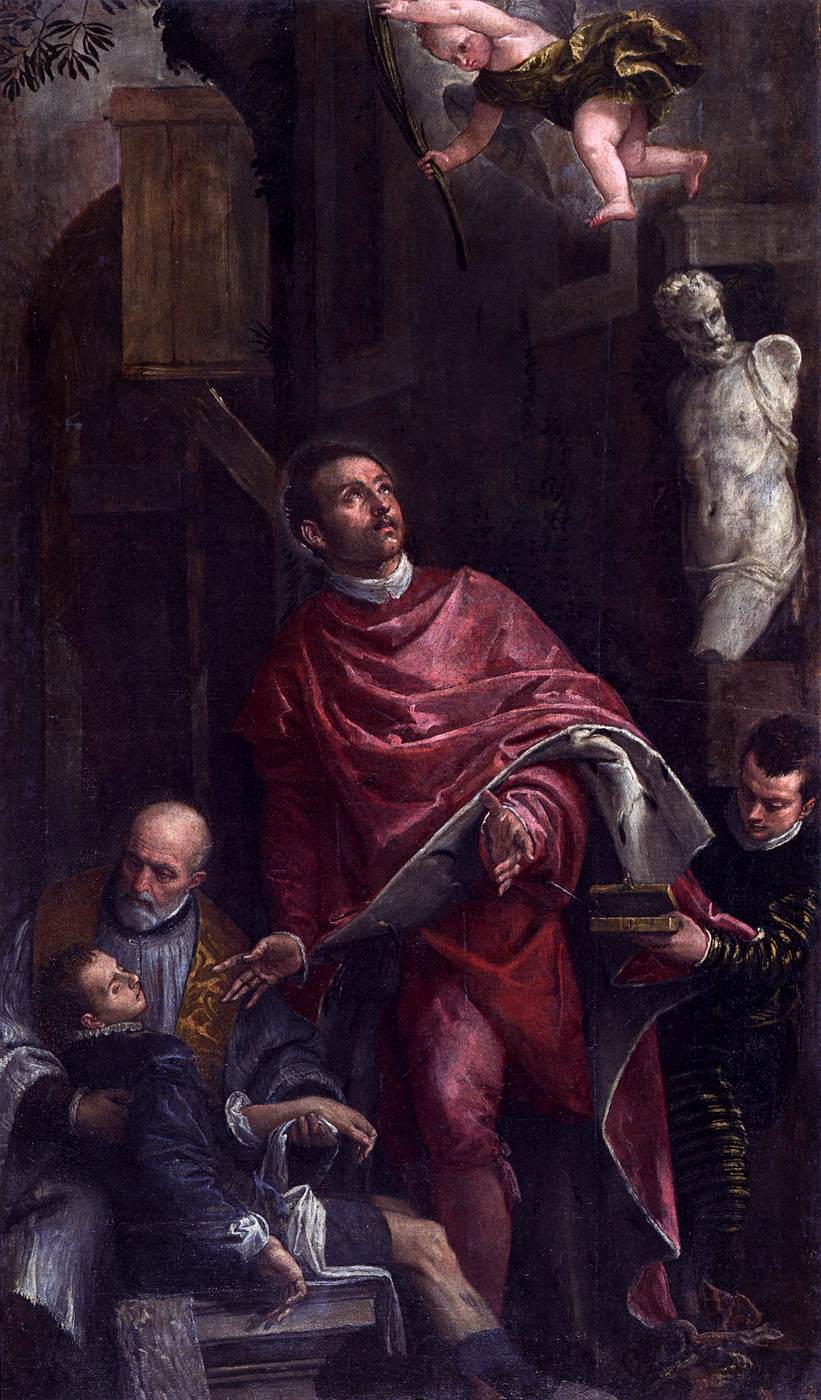Description
The painting "Conversion of St Pantaleon" by renowned Italian artist Paolo Veronese is a masterpiece that captivates with its artistic style, masterful composition, use of color, and rich history. With an original size of 277 x 160 cm, this piece is an impressive display of Veronese's skill and talent.
Veronese's artistic style is characterized by its detailed and realistic approach, and this painting is no exception. Every figure, every object, and every detail is meticulously rendered, creating a sense of beauty and harmony in the composition. Veronese uses a soft and precise brushstroke technique, which allows him to create realistic textures and volumes in each element of the work.
The composition of "Conversion of St Pantaleon" is impressive and shows Veronese's skill in arranging and balancing the elements on the canvas. In the center of the painting is the saint Pantaleon, surrounded by a crowd of people witnessing his conversion. Veronese uses the chiaroscuro technique to highlight the central figure and create a dramatic effect in the scene. Additionally, the arrangement of figures and objects in the painting creates a sense of depth and movement, adding dynamism to the composition.
The use of color in this work is remarkable. Veronese employs a rich and vibrant palette, with warm and cool tones complementing each other. Bright, rich colors such as red, blue, and gold highlight the main figures and elements of the painting, creating a striking visual effect. In addition, Veronese uses subtle tonal changes and light and shadow to give depth and volume to figures and objects.
The story behind the painting "Conversion of St Pantaleon" is also fascinating. The work represents the moment in which the saint Pantaleon, a doctor turned Christian martyr, renounces his old faith and embraces Christianity. Veronese captures this moment of transformation and redemption with great sensitivity and emotion. Through his technical mastery and his ability to convey emotions, Veronese manages to convey the importance and meaning of this religious story.
Despite its recognition and fame, there are little-known aspects of this painting. For example, Veronese is believed to have included his self-portrait in the work, but its exact location is still the subject of debate among experts. In addition, the painting was commissioned by the Church of San Pantaleon in Venice, where it is currently located. The work has been the subject of restorations and conservation over the years, which has allowed it to preserve its original beauty and splendor.
In summary, the painting "Conversion of St Pantaleon" by Paolo Veronese is a fascinating work of art that stands out for its artistic style, masterful composition, use of color and rich history. This masterpiece showcases Veronese's skill and talent as an artist, and continues to captivate viewers with its beauty and soulfulness.

